UP TO THE MINUTE
Grow Your Metal Business with the Right Tech Stack - PODCAST TRANSCRIPT
June 23, 2025 at 2:00 p.m.Editor's note: The following is the transcript of a live interview with Dave Chapman of Estimating Edge. You can read the interview below, listen to the podcast or watch the recording.
Intro: Let's get going with this MetalTalk from MetalCoffeeShop. I'm really excited that you're all here today and to be moderating today's webinar. It's going to be all about growing your business and the tech stack and we've got the expert in the house today, Dave Chapman from Estimating Edge. Dave, welcome. It's great to see you.
Dave Chapman: Good afternoon, Karen. Good to see you. Thanks for having me.
Karen Edwards: Yeah, no problem. I do want to cover a couple of housekeeping items first. This is being recorded and it will be available on MetalCoffeeShop within one to two days, so definitely by Friday. And let's get going.
Dave, tell us a little bit about you and your background.
Dave Chapman: Absolutely. So I've been in the software industry for 25 years now. For the last 22 years I've been working with the Estimating Edge. We are a estimating software primarily for roofing and interior and fireproofing and concrete contractors. We've been helping roofing contractors now for about 38 years. So we've come across a bunch of customers. I've worked with customers, this says hundreds, but probably thousands of customers over the past 22 years. And yeah, excited to talk about this topic because we have a lot of customers that ask about it.
Karen Edwards: Hey, this is such a hot topic, technology in general and technology in the trades and in the construction industry, which is why we're having this conversation. And we want you all to be part of the conversation, so we've opened to the chat. Feel free to say hello, drop us a line, tell us who you are, where you're Zooming in from today and ask your questions. If we're talking about a topic and we will have some time at the end for Q&A, but we really want to address the questions as they come up during the conversation.
And then, we've got a poll. Should be up on your screen there. If you all want to answer that question, what current tech stack challenges are you facing? And there's several options there. Let us know what your challenges are and then we'll make sure that we talk about some of those challenges throughout the conversation. It looks like I'm going to end the poll. Right now, lack of visibility is second to integration challenges, so we'll keep that in mind as we go through and talk about all of this.
All right. So Dave, we hear the word tech stack all the time, right?
Dave Chapman: Mmh-hmm.
Karen Edwards: It's almost like a catchy phrase there and I'm wondering if you could bring that down to help everybody understand exactly what is a tech stack.
Dave Chapman: Sure. So it is a buzzword of the day or of the year along with AI right now, tech stack actually. The term came from a software development arena. It's what developers use to describe things like their front end or client-facing side of programming, what development tools, frameworks and libraries, servers, backend databases, whatever third party APIs a company is using. Now the term has kind of evolved or morphed to mean the group of applications that a company uses to basically achieve their business objectives.
Back in the day, a typical tech stack for a contractor in the early 2000s was maybe Microsoft Office and an accounting software, maybe an estimating software if they're ahead of their time. But nowadays, the industry, especially the roofing industry, has evolved to necessitate many different applications internally for customer management, GC visibility, internal applications for like a CRM or estimating or accounting, scheduling, safety, payroll, all this stuff is what they refer to as a tech stack.
Karen Edwards: Yeah. And a lot of contractors maybe don't even know it, but everybody does have a tech stack. Like you said, from your Office suite to whether you're using Microsoft or Google to the tools you're doing to manage and run your business. And maybe you're dabbling around a little bit with AI and that's definitely got to be part of your tech stack as well.
Dave Chapman: Absolutely.
Karen Edwards: And you explained something to me, Dave, about the tech stack and being really a software industry thing and in the days it kind of derived from the full stack, can a developer work in every system that they have going on. So I thought that really made a lot of sense to me. Hopefully it helps somebody out there.
Dave Chapman: Yeah, absolutely. They actually referred to a developer who can work in all the different arenas as a full stack developer.
Karen Edwards: Excellent. I know I've heard that term before and now I know what it means. Thanks.
All right, so let's talk about roofing software and what are the important things to look for and look at that first bullet point. I mean that was one of the things that was a pain point in our poll was integration and compatibility with other software. So let's hear what you have to say about that.
Dave Chapman: Yeah. So compatibility with other software, you definitely, when you're considering a tech stack, you want to make sure that the different parts of your stack play nice with each other. Whether it's a direct integration, if it's an open API that you can pull data from, these are definitely things that you have to consider and we'll talk a little bit later on about how important and what software should be talking to each other.
Karen Edwards: Okay. What about some of these other points? How easy is it, the implementation, the customization? I always say if I'm going to start something new, if I'm going to get a new computer, if I'm going to use a new program, I kind of compare it to switching banks. I've got everything going the way I want it. And I think that's something that the contractors are going to have to ask those questions, don't you?
Dave Chapman: Yeah, absolutely. And just like switching banks, you can have the best bank or the best software ever, but if it's not intuitive, if it's not easy to use, then you're not going to get what you need out of it. It's frustrating to have an amazing piece of software but not be able to utilize it to its full potential. So that intuitive interface and ease of use is a huge part of it. The integrations we've mentioned that, that's just how it plays nice with the other ones.
But something that I think overshadows the rest of these that a lot of people don't consider is the implementation and customization side of things. Some softwares just leave it to you to figure things out on your own out of the box and hopefully you get to use it to its potential sometimes. That's not really a good way to get things going. You want to look at someone who's, either the company itself is going to help you implement it into your company or you may have to hire... When we brought in our CRM, we hired a third party implementation specialist that could analyze, knew about that software, could analyze our company and create it and implement it so that we're going to be using it to its full potential.
Karen Edwards: I think that's really important what you just said right there and I want to circle back and mention it. You said when we brought in a CRM, so you're a technology company, right?
Dave Chapman: Yeah.
Karen Edwards: Estimating Edge is and you were implementing a new software and you brought in an expert to help you set it up. So I think that a lot of times contractors feel like, "I've got to figure this out on my own," but there's a lot of ways that you can get help and to hear you say that you guys got help, I think that says a lot.
Dave Chapman: Yeah, I mean we're experts in our own little bubble. We all are, aren't we? But when it comes to taking a step from the outside and looking in that way, that's where it might be good to have a consultant or a third party there to help you out.
Karen Edwards: Yeah, yeah. Just like you wouldn't expect your building owner to install the roof themselves. They're bringing in a contractor as the professional. These professionals, they exist in the world of technology too and they can help you really, if not the company itself that's offering the platform, there are consultants out there that can help you as well.
Dave Chapman: Yeah, absolutely.
Karen Edwards: Okay, so let's talk about growth and the role that technology plays in growth for contractors.
Dave Chapman: Yeah, 100%. The labor saving automation is a huge part to helping you with growth. As you grow, you're going to have more things you need to do. There's going to be more billing, more communication with the field, more projects going on at the same time. So having something like a CRM that speaks with your accounting software can save a lot of time. From automating emails to customers, billing updates, creating automated follow up for payments, having the right tech stack in this case is going to help you with that growth. I mean, just to manage it is big enough when you grow to have the right people in place, but to have the right processes and softwares talking to each other is going to definitely aid in that growth.
Karen Edwards: And growth doesn't always mean hiring more people, because this is where technology can help you do more and maybe scale without having to hire another person.
Dave Chapman: Yeah, absolutely. I mean, they say that most companies can't handle anything greater than 15%, 20% growth each year because you simply don't have the processes, the software or the people in place to do that. But having the right software in place can definitely make the rest of it a little easier.
Karen Edwards: Yeah, yeah, it sure can. I talked to a contractor the other day who told me about his growth and how he was able to do that without hiring yet because he was using the right technologies. One of them being I think a virtual assistant to answer the phone and schedule appointments.
Dave Chapman: Something as simple as that, that works. And that's got to communicate with your CRM, right?
Karen Edwards: Yeah, definitely. Okay, so we're going to talk a little bit about, we make it sound easy and fun and technology's going to do all these great things for you and it can. But there's oftentimes barriers to adopting to implementing. Let's talk a little bit about that and how we can overcome those.
Dave Chapman: Sure. So I mean in the 22 plus years that I've been working in software, I think the biggest stumbling block or barrier to getting the right system has just been a reluctance to use technology at all. I think we talked about this earlier, but statistics show that the construction industry is second only to the agriculture industry as far as adopting technology. And roofing has been one of the bigger parts of the construction industry that's been slow to adopt to technology. Now everybody's doing it. It's a necessary evil in some cases, but it's definitely going to help your company grow.
I think another big thing is not knowing where to look, lack of information. There's a lot of good resources available on how the roofing contractors, to help them find the right solutions and we'll get into it. I think we have a slide later on where we get into some of those. That just not knowing where to go and another big one is insecurity. I call this a huge one. It's just not knowing what you don't know. It's embarrassing. It's an insecure feeling, being able to admit that you really don't know what you need. You just know that you need something that needs to help. It's a frustrating feeling and it's a big deal. Like I said, it's a tough thing to admit, but that insecurity is a huge barrier.
And then negative experiences, I mean, we've all had them. You may have gone out in a limb and tried a new application because it was hot and people were using it and you heard good reviews, but it just didn't work. It wasn't applicable for you at all. And here you spent this money, you've got this high-tech piece of software that you're not utilizing and that right there has stopped a lot of people from going to a new application because they're just afraid of being burnt again.
Karen Edwards: Exactly. And I've heard many stories of, "I've tried this program to manage my projects and it didn't work and people wouldn't use it and we cost us this much money and then we tried this one and it's a similar experience." It can be extremely frustrating. But I think we're seeing and Dave, you work with contractors all across the country, right?
Dave Chapman: Mmh-hmm.
Karen Edwards: So what are you seeing contractors doing to overcome these barriers? And is this next technology-oriented generation helping?
Dave Chapman: Yeah, they're definitely a lot more tech curious. So they'll do a lot more research on YouTube. I think is where a lot of people go to. But there's resources like watching just some of the RoofersCoffeeShop videos and talking to your peers if you belong to any peer groups or asking some of the associations out there. I'll talk about it a little bit more, but if you have any piece of software that you're using that you like that you, talk to those people, who do they see their other customers using. It's a great resource for getting past some of those barriers of not knowing what to look for.
Karen Edwards: Yes. I love that you mentioned the industry associations because if you're not going to some of the trade shows that these associations are having and you're not talking to folks like Dave or other technology companies out there, you're missing out on a big opportunity to learn more, see it in use or if you can't go yourself, send someone on your behalf because there's a lot of great information available out there.
So that leads us right into finding the software that works for you. How do you know, how do you avoid the big headaches and the money?
Dave Chapman: Yeah, absolutely. And there's some pitfalls to look out for and there's some good places to go to. Free trials, there's a bunch of them out there. I always urge people to be careful when they do these because sometimes some of these free trials access your company's data and that's dangerous. Some of them put you into a sales loophole that goes to all these other software companies because you're looking at this one. And another potential pitfall of those free trials is many of those aren't customized yet for you, you're just using a small little snippet of that software and you might not get the full value or get to know the full value the software by using one of those free trials. So there's some potential for danger there.
I'd really just look for the expert advice. We mentioned RoofersCoffeeShop, MetalCoffeeShop, the associations, manufacturers, they usually know what their customers are using. And like I said, for the Edge, we've been with customers for almost 40 years and we've become pretty trusted. I think over 70% of our customers have been with us for 10 years or longer and we've become kind of a consultant as to what our other customers are using. We've seen people use certain accounting softwares that didn't quite work for the construction industry. We know what CRMs most people are using and which ones work well for residential, which work better for commercial. So talking to your existing software providers is a great resource.
Karen Edwards: Yeah and because you do, like you said, you work with contractors all over the country. The manufacturers work with contractors all over the country and they know what other tools that they're using and what's working and it's not necessarily-
Dave Chapman: They said sorry.
Karen Edwards: Yeah, yeah. It's not necessarily that they're going to tell you what your biggest competitor is doing, but they have folks in other parts of the country. And I think that in this industry too, the more you talk to your peers, everyone wants to help. Most people are very helpful and they will talk to you about, "Oh yeah, I tried this and it didn't work for me because of this reason." And they'll share.
Dave Chapman: And if they have something that works, they kind of like to brag about it, so they'll tell you about it.
Karen Edwards: That is so true. "Yeah, I saved this much money and I consolidated and my projects are streamlined." They definitely want to brag about it.
So I think a good place for contractors to start is with what they're currently doing, right?
Dave Chapman: Yeah. I mean, take a look at what you're using right now. Do they talk to each other? Do they need to talk to each other? Are there any obvious gaps and how you need them to talk to each other? You've got to talk to your different departments, talk to your accounting people, talk to your project managers, talk to your field crew and find out frustrations that they're running into. It gives you some good insight as to what's working and what isn't.
Consider if the solutions you're using now, especially on the estimating and accounting side of things, if they're capable of handling larger workloads. As your company grows, you're going to need to bid more. You're going to need to do a lot more billing, you got to project manage all these things and track your employees, all this stuff is important. So you got to make sure that what you're using can grow as your company scales.
Karen Edwards: And think about, if your departments have frustrations, you're probably already hearing about it, like, "Oh, I wish I didn't have to do this, this and this. Why can't it just be once that I have to push this button?" And you may not even realize it that that is commentary on your existing technologies and processes in your business.
Dave Chapman: "We never have enough materials in the field, what's going on?"
"Why can't I quickly and easily access my stocking list," or something like that.
Karen Edwards: Yeah, so it's important to when you hear those complaints and frustrations, make a note and then talk to... A lot of times people don't realize all the capabilities that a piece of technology has. So while you're evaluating what you're currently doing, maybe you are using a software for accounting or you're using, reach out to that provider and say, "Hey, this is a pain point for me. Do you offer any solutions?" And you might be surprised.
Dave Chapman: Yeah, I mean we have ease of use up here, but the support systems and the processes, you might be having an issue with your accounting software, you're estimating software and there's a solution already there, you just don't know it. So being able to reach out to them and get follow up training. I think a typical, even on the Edge side of things, a typical customer is only using 60% of the potential of the software. Now you've got some of those power users out there who are using a lot more than that, but there may be gaps in your tech stack that can be fixed with what you have already.
Karen Edwards: Yeah, that's such a good point. And what a good statistic, only 60% of the capabilities, that's where user conferences can come into play, right?
Dave Chapman: Yep. User conferences. Our company and our parent company and a lot of the others out there offer colleges where you can just learn best practices or just get one-on-one training. Most people just get the initial training when you implement the software and then hope you run with it that way. I mean, once you learn how to click here and click there, why not learn how to make the software do more for you the next year or so.
Karen Edwards: Yeah, I love it. And learning from people, don't make that same mistake that if someone else made the mistake and we've got it fixed, learn from others those best practices. So I love that.
Dave Chapman: Yeah, absolutely. It's almost like your golf swing, is once you get a bad habit, you continue that bad habit, if you teach someone else, you're teaching them the same bad habits.
Karen Edwards: That's so true. So true.
Okay, this is a topic or hear that not everybody thinks about: technology and customer satisfaction. Really talking about technology here internally is how this conversation has been going so far. Like your accounting, your project management, your CRM, but let's talk about how it affects the customer.
Dave Chapman: Yeah, I mean we will kind of touch on each of the areas there. Having a quicker response time to inquiries, the right CRM can help you here, the right a sales tool. The worst thing you could do is have someone asking for a quote and you don't respond to them in time and someone else sends the quote to them before. And so having the right tools can help you get that faster response time.
And then when you are working with a customer, the presentation standards, if you have a good software like an estimating software, you can present them a detailed breakdown of what the costs are going to be. It's transparent and it just looks nice. You could have a nice, basically a portfolio to show them and it's impressive, it makes you look more professional.
The ease of interactions, I think this is more like an accounting type of thing. You want to make sure that it's easy to get payments from your customers. So having the right payment processing software, having a good accounting software that reports that it's been paid quick and letting the customer know that their payment was accepted, all that stuff just builds customer satisfaction. And like I said, I have a good scheduling solution. That just creates transparency for delivery and completion times. That's important for a customer to know. All these things, those top four bullets really is what builds trust with your customers and what helps you retain them and hopefully gets you some referrals that way.
Karen Edwards: Yeah and transparency I think is really important and communication. So if you can, you mentioned deliveries. We can send a text message or an email to say, "Hey, your order is now scheduled to have delivery on X Y Z date between this window," and it really keeps them in the loop of what's going on. Especially if it's a really busy building with a lot of traffic in and out, knowing what's going on is really important. And a lot of these tools will help you do that.
Dave Chapman: 100%.
Karen Edwards: Yeah. Presentation standards is funny because when we got to this bullet point, you mentioned a detailed proposal, an estimate that is branded and looks good. And I thought to myself, I had talked to a contractor and he was telling me that while they were on a sales call or talking to the potential customer, they were swiping through photos in a drop box like saying, "This is what this will look like, this is what this will look like." But a lot of softwares allow you to build those kind of things into your proposals, like, "Here's past work that we've done." It really is well-rounded.
Dave Chapman: From the manufacturer, they're already ready to go and quick and visually appealing.
Karen Edwards: And then you have your folks that are meeting with the customers doing a uniform presentation, that they're saying the same things, they're talking about the same things and the flow is much better for the customer. Definitely.
Dave Chapman: That and think about this, having that process and those softwares in place to add new salespeople on there, once you have all that stuff set, it's like franchise. It's learning to teach the new person how to use, the next person up how to use the fryer. It's already done. That whole process is there.
Karen Edwards: I love it. Yeah. Once the process is there and it's working, it's really easy to get new folks up to speed.
Dave Chapman: Absolutely.
Karen Edwards: Okay, so we've talked about growing businesses and how tech, the things that it can do to help you achieve growth, but here's a interesting, growth-oriented technology. Talk about what that means and what it's important to make sure your technology can do.
Dave Chapman: Yeah, I mean, let's talk about the first bullet here, the client database. Think about how robust your CRM is going to be. I mean, we are currently using Salesforce here, but there are ones that are better suited for the roofing industry. But being able to access that data from anywhere. I travel a lot, I'm all over the country. You travel a lot too. You want to be able to have quick and easy access to your data. You want to be able to get the right data quick. So as your company grows, this is important stuff. You're going to be all over the place running around and you want to be able to have that client database or the right CRM in place and then have the right follow-up emails and things ready to go that are all pre-done for you.
But most, I think nowadays, I don't know if you remember the buzz term from five years ago, it was cloud. And now it's a commonality. But yeah, having a cloud-based software or web-based software is important and that's the CRM. Same thing with the project tracking. Can you have a software that you can get data into from the field, have data coming in from your estimates, have data coming in from your accounting as to if you've got payments out there, the right solutions in the project tracking side of things. We'll have warning bells to keep you aware of any shortages of material or shortages of people, A good time tracking software that helps connect your field with your back office people. All of that's key to getting projects done effectively.
The e-commerce, say, I put this on there, but it's really what we talked about the last time is having a quick and easily and dependable way to process payments and get payments from your customers. We don't do this work for free, so you want to make sure that people can pay you.
At the beginning, I mentioned about the AI sort of things here. So if you have the right tech stack and your CRM is talking with your estimating software, estimating is talking to accounting, there's the next big buzzword right now is AI, artificial intelligence and what's more important now for a profitable business is being able to get analytics. Analytics from what areas of the sales are working better for you. What is a pricing trend that's happening in a certain area? Are you working more with certain general contractors than some of the others? Are you bidding a lot to this guy and not getting as much work and you're bidding half as much of this guy, but getting twice as much work? Being able to look at those analytics is huge to maintaining profitability. I think AI is helping a lot with this. There's some solutions out there that are using AI, Power BI, things like that to analyze data for you. And you'll be surprised over the next year or two how quickly that industry and the AI and the analytics is going to grow.
Karen Edwards: Yeah, I think it's mysterious still and I feel like everybody's heard of ChatGPT. People are dabbling around with it a little bit, but I think it's not really on the contractor as an end user of the platform to figure out how to incorporate AI. It's really the service provider, the platform owner that's delivering the service to incorporate that in there. And I know that you guys are looking at that, right, Dave?
Dave Chapman: Yeah, we're looking at it in so many different ways. And actually, I think the RoofersCoffeeShop is having a good discussion on AI and construction next week. But one of the things we're constantly considering is how's AI going to help as far as on the estimating side, help with the takeoff and automating the measurements and the takeoff sort of things. That's most obvious area to look. But next is, how can it help you look at specs and create proposals and scope of work? AI, ChatGPT, those things can help you with that sort of thing as well. And then the last part is going to be the analytics, analyzing the work that you've done and seeing how you can find areas to make your company more profitable.
Karen Edwards: And I always think there's and if you want to tune in that webinars next week, I think it's Thursday, it's at Coffee Conversations. But AI is still so brand new. It's not always right. So you have to, if you're using it, use it with caution. Especially if you're out using a free tool on the internet, whatever it's returning to you, you still need that human element to review. If something seems off or doesn't seem right, then you need to dig deeper and ask or reach out to Dave and say, "Dave, I just looked at this analytics report that you guys gave me and there's no way that this number's right." So then we can have a person take a look at it and they say, "Actually, no, that is right." Or, "Oh, yeah, they made a mistake, so here's the actual number for you." So you always need to check that.
Dave Chapman: Yeah, it's not flawless.
Karen Edwards: Yeah, for sure. It's pretty cool, but it does make mistakes.
Okay, let's talk about some of the additional benefits that come with technology.
Dave Chapman: So all these points implementing work standards and just being able to add new employees, that's kind of one of the things we talked about that it's just a perk of having the right tech stack. Seamless communication between all parties and being able to have that communication to happen no matter where those parties are, that's absolutely a huge benefit, which creates less stress.
I barely touched on it before, but there's safety softwares out there now that help you manage what your employees are doing, making sure they're trained, all these things. OSHA requirements are key. And there's things out there that are good tools. We offer one called Safety HQ, where you can have toolbox talks and just say, this person's been certified here and we had a check with these guys and they've all been through training today. Huge, huge benefits.
And I think one that we don't even have on here that's a huge benefit is attracting new talent. That's the toughest thing right now, is finding the right people for the right jobs. And definitely if you're looking for young new talent to help grow your business, they want to be using the latest technology. They don't want to come from a business that's using some of these things and move to your business and not have these tools available and be back in the dark ages, so to speak. So I think that's a huge additional benefit is being attractive to potential employees.
Karen Edwards: Yeah. Yeah. It's so important because the next generation of workers has just grown up on technology. I think back and you've been in the industry a long time, Dave, you started at Estimating Edge 22 years ago when the iPhone wasn't even here yet. I think we were using BlackBerrys.
Dave Chapman: I didn't even have a BlackBerry yet.
Karen Edwards: But they expect it. And I want to just piggyback on to the safety requirements. If OSHA shows up at your business on a job site and you are scrambling to pull together paperwork of, "Hey, yes. No, we did have this many hours of safety talks and we do have these people, OSHA 10, OSHA 30." And having that at your fingertips to be able to produce that information quickly and in a nice organized way, that means a lot and can do a lot for your business.
Dave Chapman: See the bullet above that one?
Karen Edwards: Oh, yeah.
Dave Chapman: Less stress.
Karen Edwards: Less stress and seamless communication as well. "Oh, you want this information? Boom, here it is. I've got it right away." And I mean, that's more important than ever. Safety is always, always important, but having that documentation to show if you're in a stressful situation like that is always key.
Dave Chapman: Good point.
Karen Edwards: Okay, so let's see. There's more on implementing tech stacks. You want more information. We've mentioned a bunch of these, but your industry partners, your tech companies, Estimating Edge, you guys have been here since the '80s. I always say that. I love the longevity. So you've seen a lot, you've evolved a lot, so you are a great resource like you mentioned. You know what other contractors are doing as well.
Dave Chapman: Yeah, give us a call. We've seen lots of solutions in tech stacks come and go and we've heard the stories about what works and what doesn't. So definitely hit us up.
Karen Edwards: And a shameless plug for the Roofing Technology Think Tank-RT3. They are an industry association, 501(c)(6), focused on helping contractors understand and implement technology in their businesses. Estimating Edge, Dave is a member.
We have a website, rt3thinktank.com. On the top, navigation, there's a button called resources. This is free for the industry to use. This is an association that just wants to give back with education. And we have a business maturity level for contractors. So you can kind of determine where your business is in terms of just getting started, mid-level, mature. And then we have a technology guide that it's very brand agnostic. It's more, "What's a CRM? What questions should I ask vendor? What are considerations that I should be thinking about if I'm going to scale?" And we've got it for ERPs, estimating platforms, you name it, it's out there. As well as an AI guide that's just a very bare bones, get started guide on how you could be working with it.
And last but not least, solutions directory. Which the industry submits their technology solution, puts a little blurb of information about it, how to find it and then other users, it's public, they have the ability to comment on it. Like, "This was great, it saved my business," or, "Oh, they were not easy to work with." So far, everything out there is pretty good. We don't endorse them. It's just a platform to browse, kind of like a shopping center, if you will, a virtual trade show. And then of course, MetalCoffeeShop, which we're talking about it right now. We love talking about technology. But other trusted providers, I think, Dave, you've gone through that list as well with who. Maybe you just want to reiterate that. What are the trusted providers?
Dave Chapman: Yeah. You've been with your accounting software for 20 years and you love them. Ask them who they see people using, who their other customers are using. So those trusted users that you have right now will point you in the right direction and they'll likely be able to tell you who they interact with and integrate with.
Karen Edwards: Yeah, just talk. You just have to ask and have to have those conversations. It can be overwhelming, so one bite at a time. And I think it's important to mention as well that and we talked about this before, Dave, you and I, before we started the webinar, about if your business has a process problem or internal problem, technology is not always going to solve it. So you got to have to do that internal reflection first and figure out what are your pain points. And we mentioned this with the frustrations in the different departments and are there things that you need to do to fix first, then technology can support and help you?
Dave Chapman: Absolutely. Softwares can only solve, it's garbage in, garbage out. So you got to know what the garbage is before you look for the software to solve it.
Karen Edwards: Yeah, yeah. Garbage in, garbage out. That's an old term too from the databases years and years ago, but it still is valid today. And that's why it's so important too, to have all your stack talking to each other, because if you're manually entering information multiple places, the risk for error just is elevated and then it becomes garbage that you just put into that system and so you're going to get garbage on the other side.
Dave Chapman: Yeah. Absolutely.
Karen Edwards: Yeah. Wow, Dave, this was a really fun conversation. I hope that those out there listening and watching have taken away some key nuggets from the webinar. I just love asking questions and talking to your providers, I think that's huge. The stat you mentioned about most people are only using 60% of what their current solution is able to do is another key takeaway for me. So talk to your current providers and don't be afraid to ask questions, right?
Dave Chapman: Yep, absolutely. They know how to use it 100%. You only know what you learned initially, so talk to them. Do follow up training.
Karen Edwards: That's for sure. We have been open for questions, Dave. We've done such a good job explaining everything that no one has any questions right now that I could see. Let me do one more quick check. Yep, I think we're good. But if you want to reach out, if you do have questions for Dave after the fact, just visit RoofersCoffeeShop, MetalCoffeeShop. You can find Estimating Edge there. You can find their contact information. Or just go to Estimating Edge's website, I'm sure you can get in touch with Dave there. Right?
Dave Chapman: Yep. estimatingedge.com.
Karen Edwards: Easy-peasy. Well, thank you, Dave. Thank you, Estimating Edge. This was a great conversation on technology. If you are watching this live and you want to register for that Coffee Conversations next week, that's on RoofersCoffeeShop and if you're listening to this on demand, that will be available on demand as well and that's going to be a great conversation diving into that. Thank you, Dave. It was a pleasure.
Dave Chapman: Absolutely, Karen, thank you for the opportunity.
Outro: Yeah and as always, we hope to see you on a future installment of Metal Talk. Please go to metalcoffeeshop.com under our read, listen, watch navigation and you'll see everything that's coming up and everything that's available on demand. Thanks everyone. We'll see you next time.


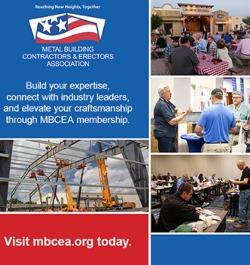






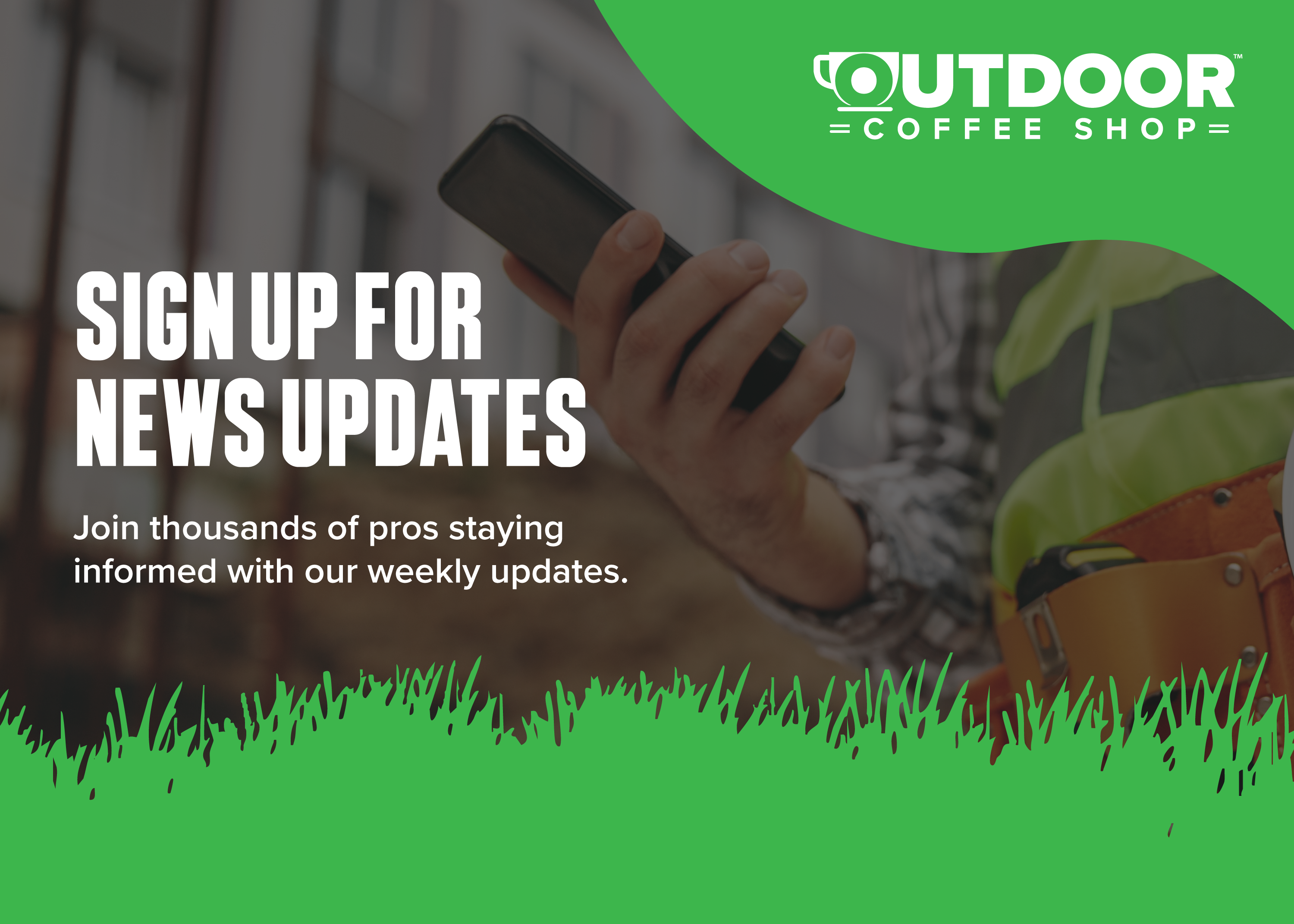


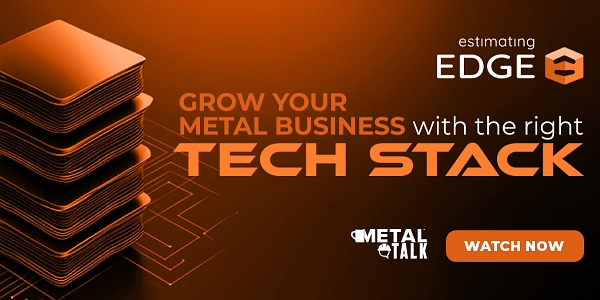
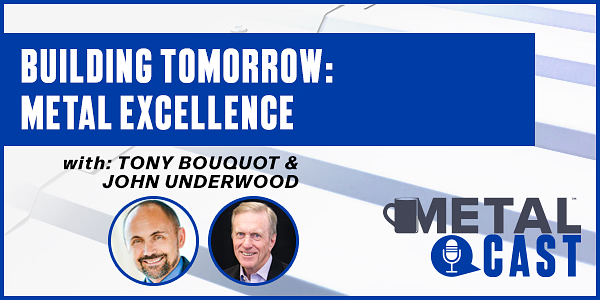

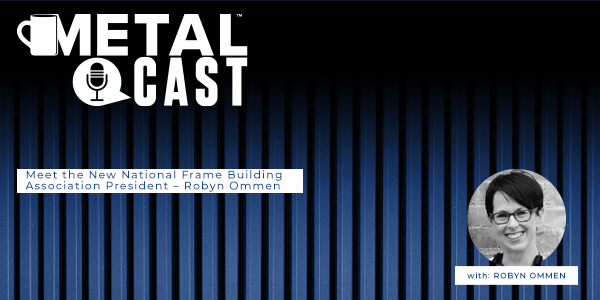





Comments
Leave a Reply
Have an account? Login to leave a comment!
Sign In